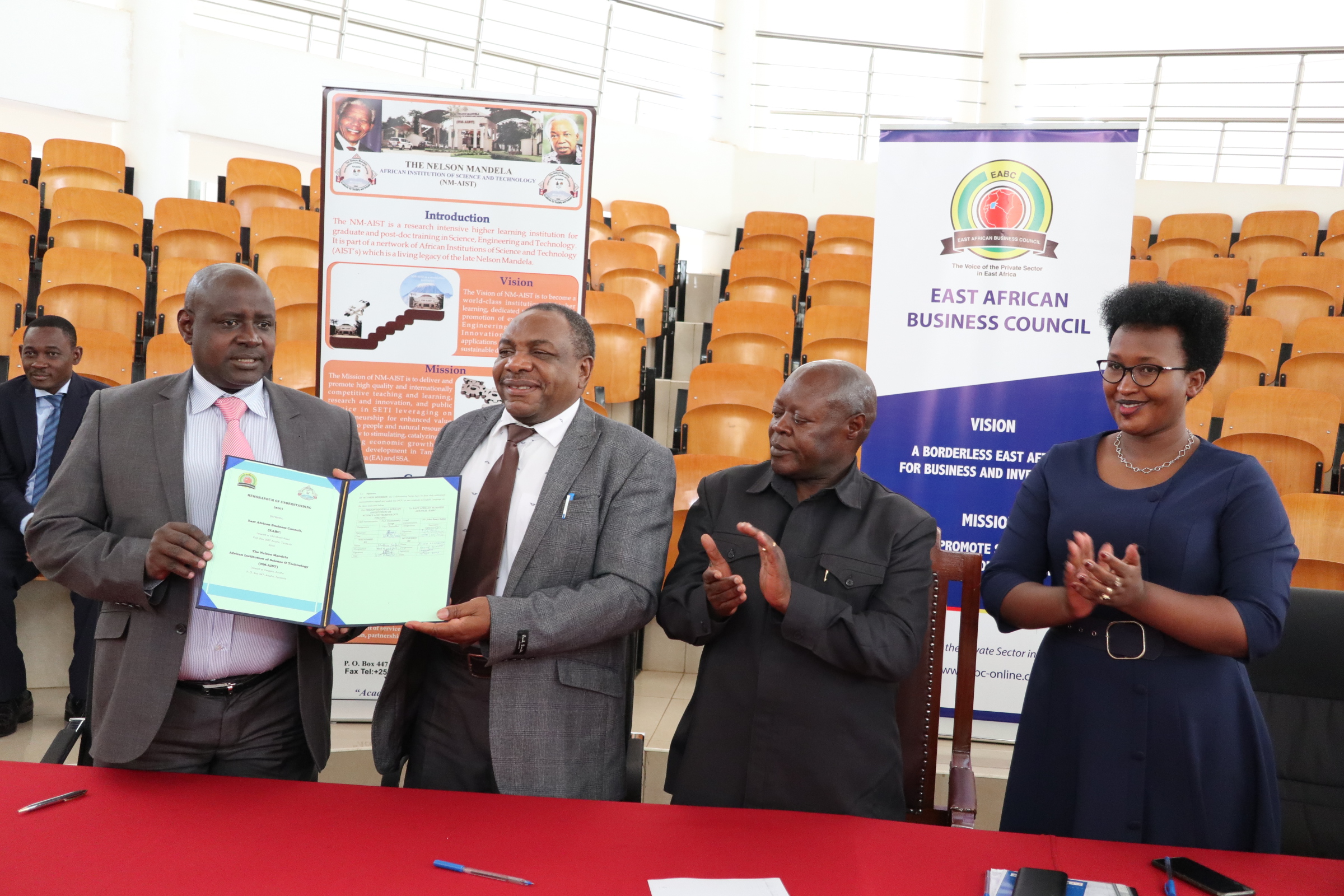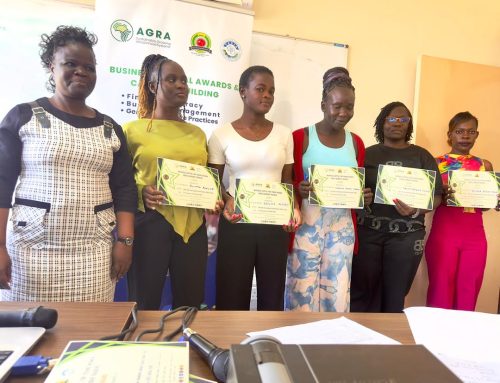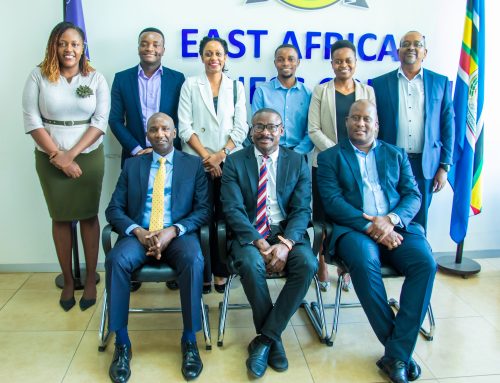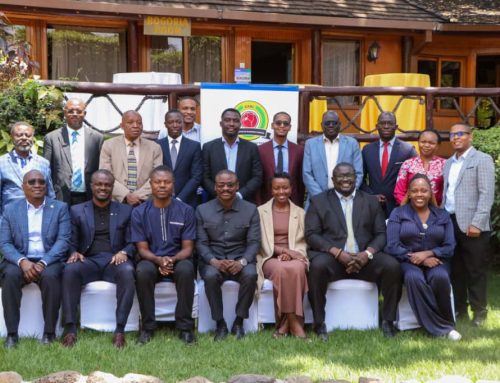Tuesday, 12th October 2021, Arusha, Tanzania: The East African Business Council (EABC) has signed a Memorandum of Understanding (MOU) with the Nelson Mandela African Institution of Science & Technology (NM-AIST) to bridge the skills gap & mismatch and upscale the digital transformation of the EAC bloc.
Statistics show 65% of African CEOs state that skills shortage prevent organizations from innovating effectively, (PwC’s 22nd Annual Global CEO Survey). According to East African Qualifications Framework for Higher Education (EAQFHE), Survey 2014, skills gap affect 77% of productivity, 42% efficiency and 8% competitiveness of businesses in East Africa
“EABC will offer practical industrial placement for the academic in order to reduce skill mismatch and boost innovation towards a digital economy,” said Mr. John Bosco Kalisa, EABC CEO during the signing ceremony.
He said digital and technologies underpin cross-border business resilience and recovery amid COVID-19. He stated that the technological changes are happening fast in the global economy and SMEs and industries have adopted digital tools such as e-commerce to access the EAC market and reinforce supply chains due to the disruption of COVID-19.
“With the commencement of trading under the African Continental Free Trade Area (AfCFTA) the academic re-imagine and create new technological innovations to support industries to aggregate & consolidate EAC exports and integrate SMEs into the regional value chains boosting our competitiveness,” said Mr. Kalisa.
The agreement outlines to improve collaboration on evidence research-based advocacy on agribusiness, health & industrial development and rolling out of professional, scientific & technical symposiums across the EAC bloc to commercialize innovations and research.
In his remarks, Prof. Emmanuel Luoga, Vice-Chancellor of NM-AIST said “This partnership is built on shared values to solve societal problems, promote innovation and aspirations of Africa growth – Agenda 2063.” The Vice-Chancellor said the partnership reinforces theoretical approaches with practical tactics responding better to industry needs in the EAC regional integration agenda. Prof. Luoga applauded the Arusha Regional Commissioner and EAC Secretary-General for successfully organizing the EAC Tourism Expo.
The Chief Guest Hon. John Mongella, Regional Commissioner of Arusha represented by Eng. Richard Ruyango, District Commissioner of Arumeru said, “The Government of the United Republic of Tanzania is committed to support the aspirations and implementation of the MoU between EABC and NM-AIS, as the East African people are the real beneficiaries of this remarkable partnership.”
The signing ceremony was graced by Hon. Dr. Peter Mathuki, Secretary-General of the East African Community represented by Alhaj Richard Kibowa, EAC Director of Trade who urged for the more academia-private partnership for the social-economic transformation of the EAC bloc.
The signing ceremony was witnessed by Mrs. Amelie Ninganza, EABC Board Director.
Issued by:
Mr. John Bosco Kalisa Executive Director /Chief Executive Officer
East African Business Council (EABC)
9th Floor Mafao House | Old Moshi Road | Arusha | Tanzania
P. O. Box 2617 | Tel: +255 27 2520162
Email: admin@eabc-online.com I Website: www.eabc-online.com
EABC – The Voice of the Private Sector in East Africa
About East African Business Council: The East African Business Council (EABC) is the regional apex body of private sector associations and Corporates from the 6 East African countries. It was established in 1997 to foster the interests of the private sector in the integration process of the East African Community. EABC vision is a borderless East Africa for business and investment. The primary mission is to promote sustainable private sector-driven growth in the EAC.
About Nelson Mandela African Institution of Science and Technology (NM-AIST)
Nelson Mandela African Institution of Science and Technology (NM-AIST) is a public higher learning institution established and operating in accordance with the NM-AIST Charter of 2013 charged with the responsibility of contributing to the development of a critical mass of top-notch science, engineering, technology and innovation experts, technopreneurs, industry captains and innovation managers in Science, Engineering, Technology and Innovation, for addressing industry and society needs and problems through teaching and learning, research and innovation, and public outreach services for sustainable socio-economic development of Tanzania and Sub-Saharan Africa (SSA).





